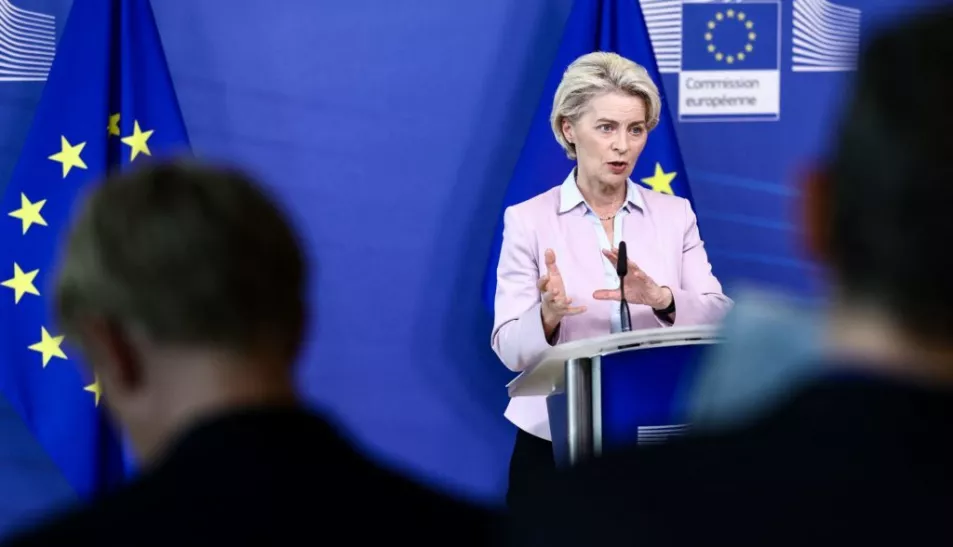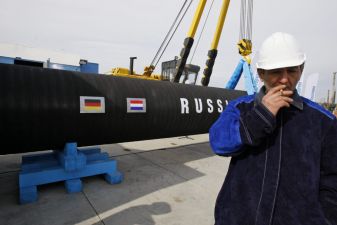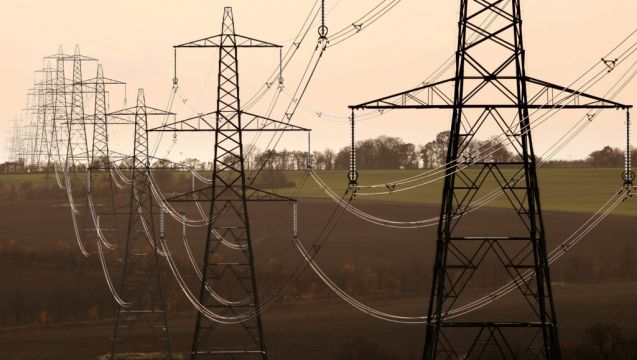The European Union is preparing emergency plans to cap gas prices or separate power prices from the soaring cost of gas – as well as longer-term reforms aimed at ensuring electricity prices reflect cheaper renewable energy.
Energy ministers from EU countries will meet on September 9th to discuss how to ease the burden of soaring energy prices on businesses and households as a matter or urgency.
European power costs have surged in the last year, driven by record gas prices as Russia curbed supply to Europe.
European governments have accused Moscow of using energy as blackmail, in retaliation for Western support for Ukraine after Russia's invasion. Russian gas giant Gazprom has blamed the cuts on Western sanctions and technical issues.
Changing the 27-country EU's energy systems may be complex and lengthy, as the cross-border trading of energy commodities among its members has taken two decades to emerge and solidify. But policymakers are racing to find a short-term solution.
Here's why Europe is considering energy market reforms, and what they could entail.
Why is the electricity price linked to gas?
In the EU energy system, the wholesale electricity price is set by the last power plant needed to meet overall demand.
Wind farms, nuclear, coal and gas plants and all other generators bid into the power market, with the cheapest sources coming in first, followed by pricier sources like gas. Gas plants often set the price in this system.
The idea is that because all generators sell their power at the same price, the cheaper renewable generators end up with a bigger profit margin – a stimulus that incentivises more investment in the renewable generation Europe needs to reach climate change goals.
But countries like Spain have said the system is unfair, as it results in cheap renewable energy being sold to consumers for the same price as costlier fossil fuel-based power.
Gas prices have soared as Russia has cut the volumes it sends to Europe, and amid intense global competition for non-Russian gas. The effect has been to drive up the price of producing power from gas in Europe, resulting in higher overall power prices.
Germany's benchmark power contract for 2023 surged to a record high of €1,050 a megawatt hour (MWh) in late August, 14 times the level a year ago, although prices have since partially retreated.
Other factors boosting power prices include problems with French nuclear plants and severe drought in Europe that hampered hydropower output and affected coal deliveries.
How could the EU change energy prices?
EU chief Ursula von der Leyen said on Wednesday the European Commission would propose a cap on revenues for electricity generators that do not run on gas.
The jump in power prices has yielded bumper revenues for non-gas generators with cheaper running costs, like wind farms and nuclear plants, and von der Leyen said countries should use the price cap to skim off those revenues and spend the cash on curbing consumers' bills.

A draft of the Commission's proposal, seen by Reuters, said the cap would be €200 per megawatt hour – less than half of current wholesale power prices in Germany – and wind and solar farms, biomass plants, nuclear power plants and coal generators would be among those affected.
The price cap would be applied and the excess revenues recovered after power transactions are settled, so the measure would not directly affect prices in Europe's exchange-traded electricity market, said the draft, which could change before it is published.
The Czech Republic, which holds the EU's rotating presidency, has also put forward options.
They include a price cap on imported gas from certain countries, a price cap on gas used to produce electricity, or temporarily removing gas power plants from the current EU system of setting electricity prices.
EU energy ministers are set to discuss the various options when they meet on Friday. Any new policies or EU laws would need approval from EU countries.
The idea of capping gas or power prices has long had support from Spain, Belgium and others, and now from initially reluctant countries like Austria and Germany. France is among the states in favour of action to separate gas and electricity prices.
Von der Leyen also said the Commission would propose a price cap specifically on gas from Russia – a move aimed at cutting the revenues Moscow receives for selling fuel.
Some countries are wary, however, and say this would risk Moscow retaliating by completely stopping the dwindling supply it still sends to Europe.
Another option could be for governments to cap the gas price and pay gas companies the difference between the capped price and the higher market price.
Countries including Germany and the Netherlands previously opposed that since it would effectively subsidise fossil fuel generation with public funds that they said would be better spent on the shift to cheaper clean energy.
The Czech suggestions also include temporarily limiting power trading on European exchanges to intraday and day-to-day transactions.
What are the potential downsides?

High gas prices provide a financial incentive for industries and households to reduce their gas consumption - a behavioural change governments are trying to encourage to ensure there is enough fuel to get through winter.
Capping the gas price would limit that incentive, and critics say it could even encourage more gas use when governments need to be rolling out policies to reduce consumption.
Some analysts have suggested targeted financial support for low-income households and businesses hit hardest by the soaring prices would be a better option than a hasty market overhaul.
Other questions remain about how governments could cap the cost of gas-fuelled power in a way that did not encourage gas plant owners to produce less power when countries urgently need it.







